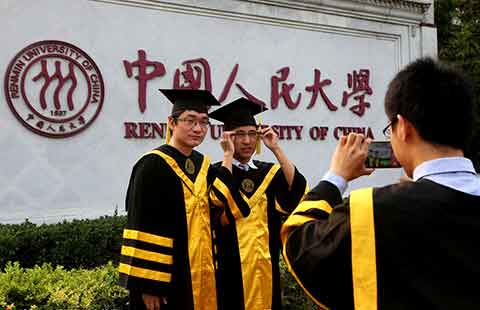Yuan could replace US dollar in a decade
(Agencies) Updated: 2011-09-01 10:51Here's a bold prediction to feed Western worries that power is shifting inexorably to the East: China's yuan could overtake the US dollar as the world's principal reserve currency as soon as next decade.
"Chinese economic dominance is more imminent and more broad-based -- encompassing output, trade, and currency -- than is currently recognised," Arvind Subramanian, a senior fellow at the Peterson Institute for International Economics, a Washington think tank, writes in a new book, 'Eclipse: Living in the Shadow of China's Economic Dominance'.
"By 2030, this dominance could resemble that of the United States in the 1970s and the United Kingdom around 1870. And this economic dominance will in turn elevate the renminbi to premier reserve currency status much sooner than currently expected," he writes.
Indeed, that time could come in a decade, based on the conclusion of prominent economic historian Barry Eichengreen that the dollar displaced sterling as the main global currency within about 10 years of the United States surpassing Britain as the world's dominant economic power.
In a telephone interview, Subramanian said the rise of the renminbi was not pre-ordained. Critically, China would need to scrap curbs on foreigners' access to the yuan for purely financial purposes; it would also have to win the trust of international investors by making its domestic markets deeper and more transparent.
Alicia Garcia-Herrero, chief emerging markets economist at Spanish bank BBVA in Hong Kong, agreed that the yuan could attain the status of a reserve currency, widely used by central banks and other official institutions, sooner than expected.
Subramanian duly laces his book with caveats but nevertheless concludes that the economic world in 2030 will be unrecognizably different from what it is today as poorer, more populous countries grow faster than advanced economies.
"A key message is that the dominant West will have to start readjusting to the new reality of relative but not necessarily absolute decline," he writes. "In particular, the economic dominance and hegemony of the United States will be under challenge from a rising China."
- Novartis Shanghai R&D center to help meet nation's health needs
- China's love affair with soccer sees investors score
- China Mobile says its internet-of-things sales to hit $15b
- EU said to bolster antitrust probe of Google
- Fosun chairman says the company focuses on health, wealth and happiness
- Zeavion to buy early education business of America's Gymboree
- Midea reaches binding investment agreement with Kuka
- CITIC Bank and Uber to issue co-branded credit cards


















